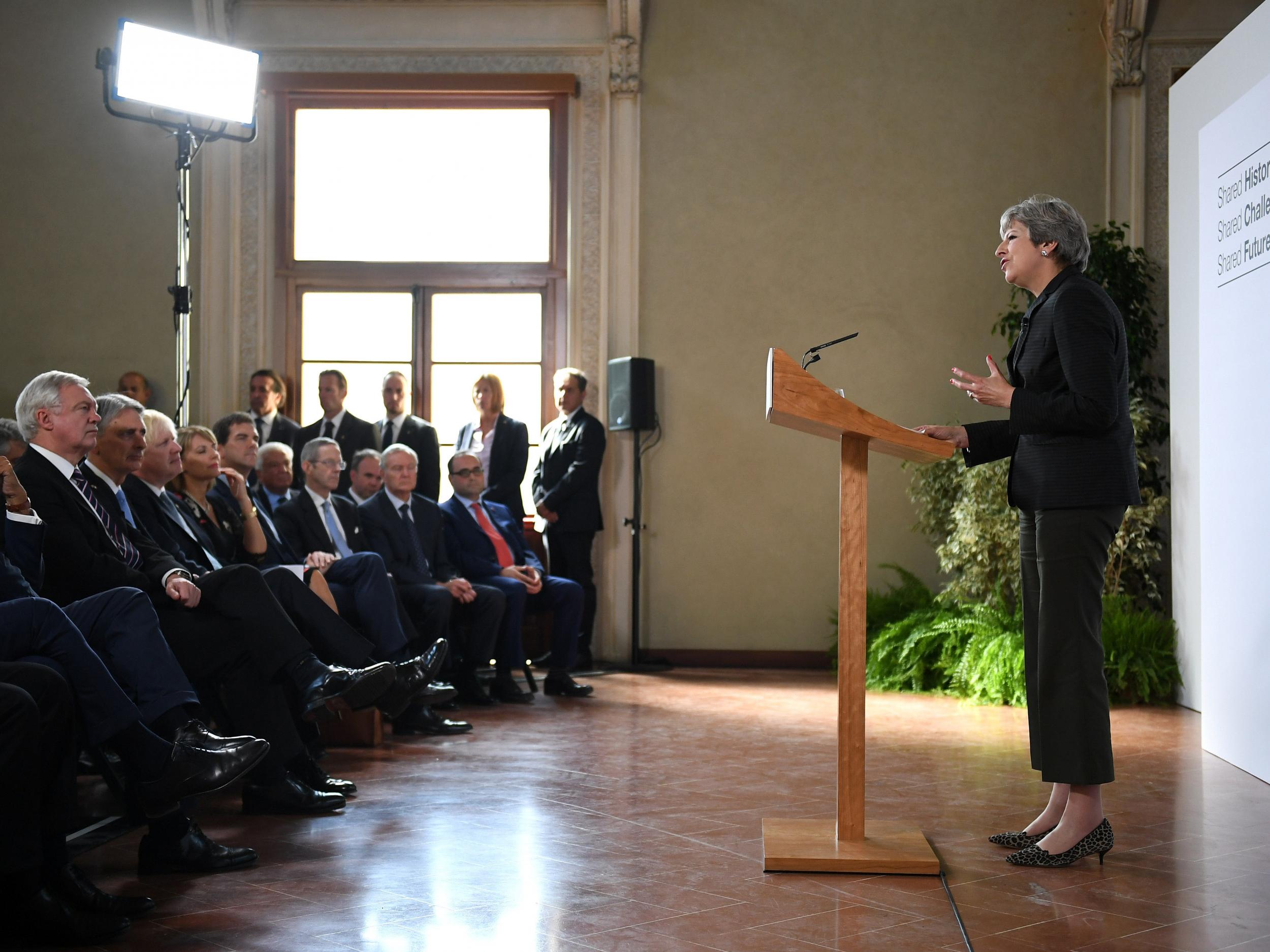Brexit: Theresa May has repeatedly contradicted her own plans to prevent 'no deal' crash exit, research suggests
Government accused of conflicting statements that clash with Prime Minister's Florence speech – preventing a breakthrough in the deadlocked talks

Your support helps us to tell the story
From reproductive rights to climate change to Big Tech, The Independent is on the ground when the story is developing. Whether it's investigating the financials of Elon Musk's pro-Trump PAC or producing our latest documentary, 'The A Word', which shines a light on the American women fighting for reproductive rights, we know how important it is to parse out the facts from the messaging.
At such a critical moment in US history, we need reporters on the ground. Your donation allows us to keep sending journalists to speak to both sides of the story.
The Independent is trusted by Americans across the entire political spectrum. And unlike many other quality news outlets, we choose not to lock Americans out of our reporting and analysis with paywalls. We believe quality journalism should be available to everyone, paid for by those who can afford it.
Your support makes all the difference.Theresa May and her ministers have repeatedly contradicted her own plan to prevent a hugely damaging “no deal” Brexit, new research shows.
The Government is accused of confusing and conflicting statements that clash with her Florence speech – just three weeks after it was meant to secure a breakthrough in the deadlocked talks. The incoherence “raises the risk of a complete breakdown in the Article 50 negotiations, and of a disastrous no deal Brexit”, a pro-EU group warned.
The research – issued as the EU confirmed the exit talks are still floundering – identifies six examples of contradictory statements.
In Florence, the Prime Minister agreed a transitional period was needed to cushion EU withdrawal in March 2019 – and, crucially, that the UK would follow “the existing structure of rules and regulations”.
But Open Britain said she had “serious questions to answer”, after:
* The Prime Minister insisted Britain would not accept the “four pillars” required for single market membership including “free movement, continued in perpetuity ECJ [European Court of Justice] jurisdiction”.
The group said this was “clearly inconsistent with a status quo transition, in which we would need to accept the four freedoms”.
* Ms May also said “when we leave the European Union, we will leave the Common Fisheries Policy”.
* The Prime Minister and others repeatedly insisted Britain would be free to negotiate new free trade agreements, during a transition period.
* Brexit Secretary David Davis said that, after March 2019, the UK would be “outside the European law” during the transition period.
All three statements contradicted Ms May’s pledge to retain “the existing structure of rules and regulations” during transition, Open Britain said.
* Mr Davis’ deputy, Robin Walker, vowed that, after March 2019, the UK “will be free to change the law where they decide it is right to do so”.
The group said this suggested the Brexit department believed the UK would be “outside the jurisdiction of the European Court of Justice” – when Ms May said it would be inside, at least temporarily.
* Commons Leader Andrea Leadsom, the Leader of the House Commons, said that the “four freedoms end in 2019”.
Again, this contradicted the Prime Minister saying EU citizens would retain the freedom to come here during transition, said Open Britain.
In a letter to the Prime Minister, Heidi Alexander, a Labour MP supporting Open Britain, warned: “These inconsistencies matter because they exacerbate the uncertainty and anxiety being felt by people and businesses across the UK.
“It also sends a message across the EU that the Government is saying one thing to our negotiating partners, and something else entirely to domestic audiences, and that ministers are given free rein to say what they like.
“This, of course, further raises the risk of a complete breakdown in the Article 50 negotiations – and of a disastrous no deal Brexit.”
Significantly, in Brussels, chief negotiator Michael Barnier argued the deadlock could be broken if Britain negotiated “on the basis of the commitments entered into by Theresa May in Florence”.
Join our commenting forum
Join thought-provoking conversations, follow other Independent readers and see their replies
Comments